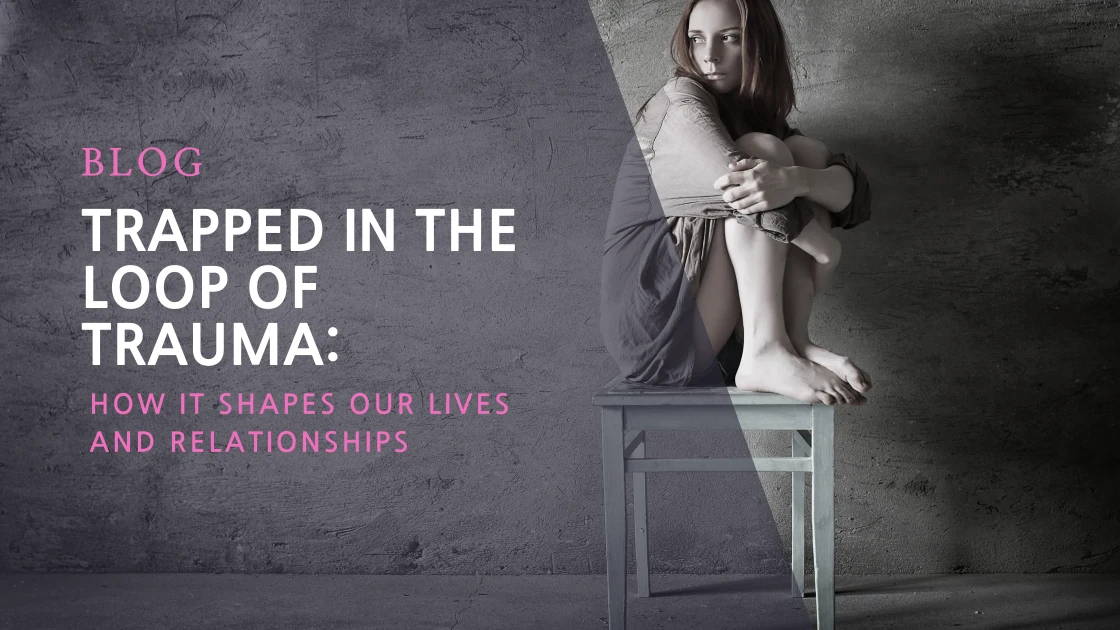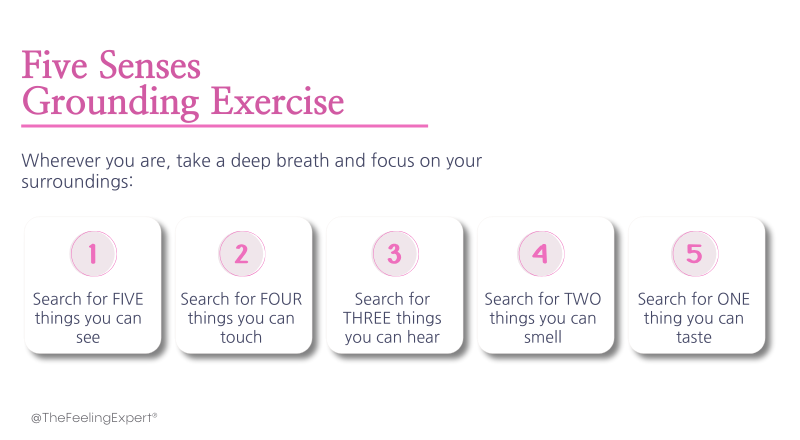
Living with trauma can easily feel like being stuck in a trauma loop–a cycle where painful memories and feelings replay over and over, shaping how we experience the world—and ourselves. For many, this trauma loop creates a powerful, often hidden core belief of: “This is how it will always be.” This feeling is understandable and often rooted in real experiences, but it can bring on overwhelming emotions that quietly influence our relationships in ways we may not fully recognize or notice.
Unresolved trauma can get “stuck” in both the brain and body, keeping us on high alert and sometimes leading to behaviors that create distance with loved ones. Research shows that trauma survivors may experience heightened vigilance, anxiety, and emotional reactivity. This state of constant alertness makes it challenging to fully connect with others, even in safe relationships. Loved ones may feel like they’re “walking on eggshells,” unable to understand or connect deeply.
When we believe trauma is “never-ending,” we’re often more likely to protect ourselves in ways that keep us feeling safe but distant. We might withdraw, struggle to accept support, or feel hypersensitive to perceived rejection. Over time, this belief can transform our relationships into battlegrounds of unmet needs, unspoken fears, and feelings of isolation.
If you’re wondering whether trauma could be affecting your relationships, here are some common signs:
Living with trauma often feels like waiting for the next painful event. We’re always on edge, bracing for something bad to happen—even in safe situations. This sense of vigilance can create tension in relationships, making others feel uneasy or distant, unsure of how to connect.
The trauma loop can lead you to “all-or-nothing” thinking, which seeps into other areas of your life. You might start questioning if positive moments will last, expecting the worst from situations or people. This belief can make you keep others at arm’s length, preventing deeper connections and leaving loved ones feeling pushed away.
It’s common for those with trauma to find it hard to trust others. Even when loved ones try to offer support, it might feel like a temporary fix—a “Band-Aid” on an unhealing wound. This reluctance to accept support can lead others to feel helpless or even rejected.
Many trauma survivors fear they’re “too much” for others, holding back their emotions to avoid being a burden. While self-protection is valid, it can create distance in relationships, making loved ones feel shut out or unable to fully understand what’s going on beneath the surface.
Trauma can amplify emotions, leading to intense reactions when feelings become overwhelming. These outbursts can confuse loved ones who may not understand the depth of the pain behind them, often leading to miscommunication or tension.
Even when things go well, the belief that trauma is “never-ending” can cause skepticism about positive changes. You may feel like something good won’t last, which can lead to withdrawing or even sabotaging opportunities for growth. Loved ones may notice this, but not fully understand why it’s happening.
If you resonate with any of these signs, it’s important to know that there are small, practical steps that can help. One powerful method is grounding in the present moment. This exercise, rooted in trauma recovery research, can ease feelings of hypervigilance and help us feel safer in our bodies.
Here’s a grounding exercise you can try whenever you’re feeling overwhelmed:

This simple exercise, recommended by trauma experts, brings your awareness back to the present moment. Over time, it can help reduce the feeling of being “stuck” in trauma, helping you feel more anchored in the here and now.
The trauma loop leaves you believing this will “never end”, which is powerful and deeply understandable. But it’s important to remember that healing is possible, even if it doesn’t mean “getting over” the trauma. It means finding ways to live alongside it, with moments of peace, connection, and joy woven in. Trauma-informed therapy, self-care practices, and small daily steps can be transformative, allowing you to reframe that belief and find more balance so you can end the trauma loop.
You deserve a life where safety, trust, and hope are not just fleeting but real possibilities. Healing can be slow, but each small step counts. Thank you for being here, for reading this far, and for honoring your own journey. Remember, you’re not alone.
For more social mental health tips, follow me on instagram: The Feeling Expert
The Feeling Expert is licensed to provide in-person, online video or phone holistic psychotherapy and mental health counseling throughout the state of Florida.
Sign up for tips and insights delivered straight to your inbox: Mindful Healing: Insights to Heal Your Past & Thrive. Get tips to help you as you heal from trauma, connect with your authentic self, and create balance in your daily life.